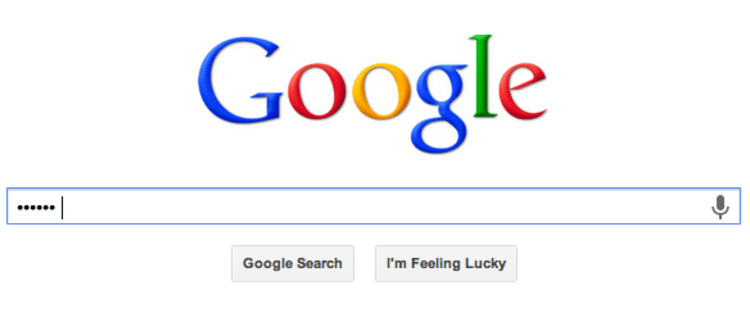Blog and News > lead-generation > Google to stop sharing keyword data what it means for your business
Google to stop sharing keyword data what it means for your business
Google's decision to encrypt all organic search data means the search keywords that led to a website without clicking on a paid advert will no longer be available to website owners.

###Unless you’ve been living in a cave for the past week, you probably know that in addition to a new search algorithm Google has been rolling out a big change which will prevent the analysis of the keyword that led to your website.
####On the 23rd of September, Danny Sullivan from Search Engine Land reported that Google has been quietly moving to make all searches secure, except for paid clicks. Officially done to provide better privacy and security for the end user, the direct result is that information on the search query (the keywords entered in the search engine) is not available anymore.
Most analytics packages, ranging from the free Google Analytics to Enterprise level products such as Adobe Omniture, have been providing access to this keyword data, which was then analysed by professionals for SEO and marketing optimisation.
According to the blog (Not Provided) Count over 80% of queries no-longer provide keyword data, up from 50% early September and 25% at the beginning of 2013. It means that website owners are now in the dark regarding what organic searches led to their website and to a conversion. The picture below shows the percentage of organic visits from Google with the keyword hidden across 60 websites they are monitoring. You can see the sharp rise from September when Google started to roll out the change.

A lot has been already written on the subject, the key thing to know is that Google has indeed confirmed the situation in a reply to a question from Danny:
####”We added SSL encryption for our signed-in search users in 2011, as well as searches from the Chrome omnibox earlier this year. We’re now working to bring this extra protection to more users who are not signed in.
####We want to provide SSL protection to as many users as we can, in as many regions as we can — we added non-signed-in Chrome omnibox searches earlier this year, and more recently other users who aren’t signed in. We’re going to continue expanding our use of SSL in our services because we believe it’s a good thing for users….
####The motivation here is not to drive the ads side — it’s for our search users.”
Bye bye keyword data information, now what can you do?
No software will be able to give you information on organic keywords that led to your website. Even paying $150,000 a year for Google Analytics premium subscription will not give you access to this information. Marketers and SEO companies will have to learn to work differently, without relying on search keyword data to perform website optimisations.
If you are using Google Adwords for paid search marketing you will still be able to see what keywords have been driving qualified traffic. As before using the “search term” report in your Adwords interface you can see what search query led to a click on an ad beyond the keyword you’ve purchased. However it requires a click on an ad triggered by a related paid keyword. Also by linking your Adwords account with Google analytics you will be able to perform some analyses on your website traffic coming from paid searches.

Google is still providing limited access to this data in the Search Queries tool in [Webmaster tool] (https://support.google.com/webmasters/answer/35252?hl=en) but the information is limited to the top 2,000 searches in a given day, with only 90 days data retention and no possibility to link the keyword to any visit data. It’s great in order to see what’s driving traffic to your site but not enough to perform any deep analysis on which keyword is actually providing value to you.
Other search engine, like Bing or Yahoo! are still providing keyword information but might follow the same route in the future. For now analytics packages will still show you the information on queries coming from them.
From a SEO point of view this emphasises one more time that “good SEO” is about creating good quality content and efficient website architecture as opposed to reverse engineering the algorithm and trying to trick the rankings with heavy keyword optimisation.
###What will it change for CANDDi customers? For CANDDi customers the only change is that the keyword information will not be available anymore in the referrer section for searches coming from Google.
CANDDi will still provide you with the a powerful way to identify good prospects from your web traffic and be notified when they are on your website.
Tell us what you think about this change, how this will be impacting you?